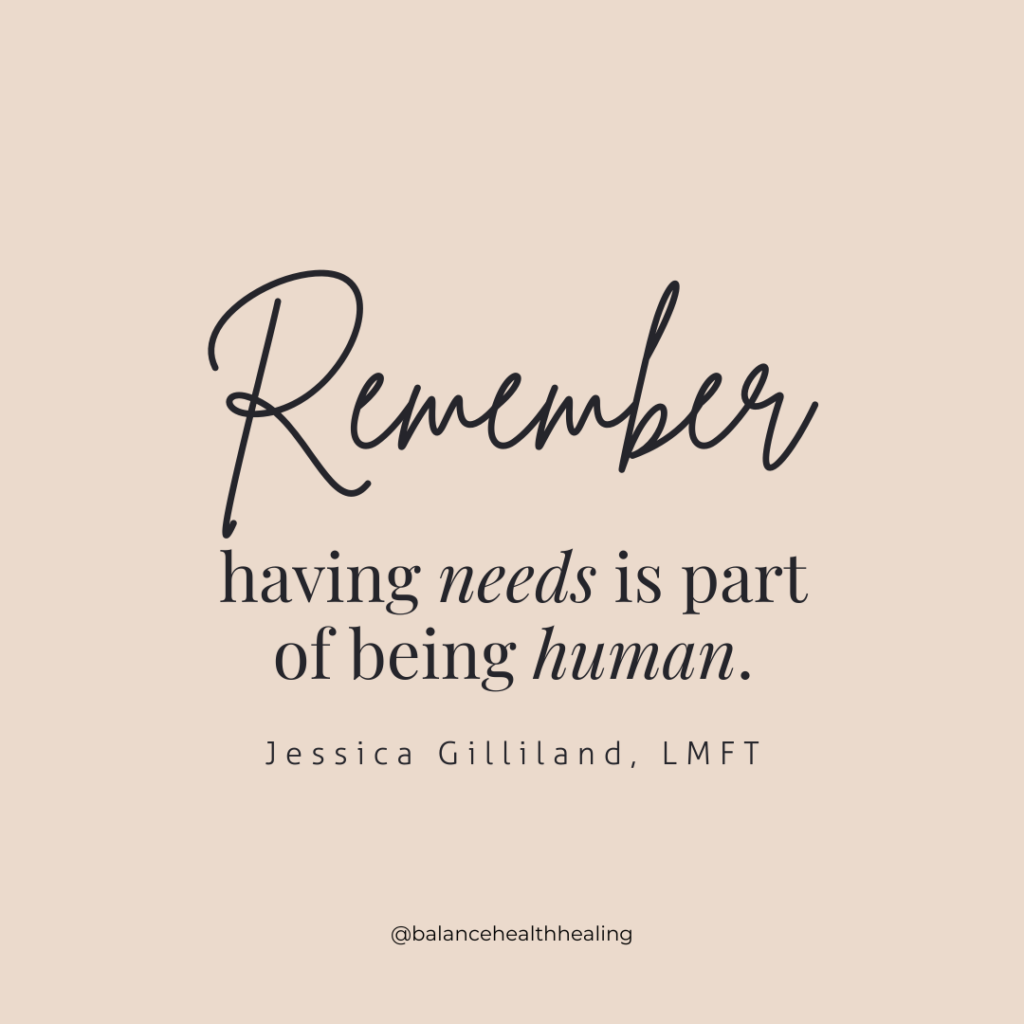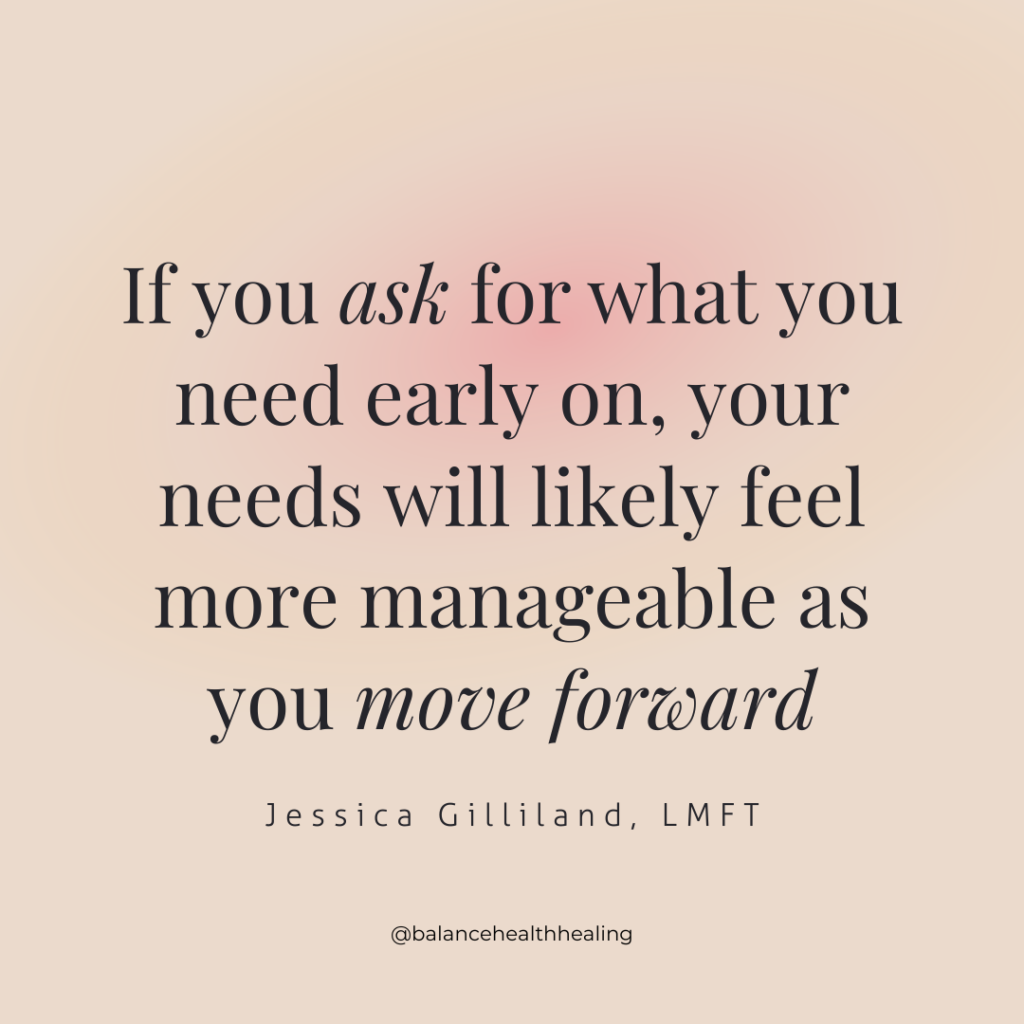When I was a teenager, I had a therapist who shared an insight that has stuck with me. She said, “Healthy people ask for what they need.” For 17-year-old me, this felt like a revelation, as I was accustomed to trying to do most things in my life independently. I tried as hard as I could to get through the hard parts of my life without asking anything of anyone for fear of being a burden. It had never occurred to me that it might be healthy to ask for what I needed.
this felt like a revelation, as I was accustomed to trying to do most things in my life independently. I tried as hard as I could to get through the hard parts of my life without asking anything of anyone for fear of being a burden. It had never occurred to me that it might be healthy to ask for what I needed.
As life has gone on, I’ve seen the benefits of having the courage to speak up for my own needs. I also get to see my therapy clients experience change and healing as they step into advocating for their needs in their relationships. Even after years of experiencing and witnessing the benefits of asking in healthy ways to have needs met, I’ll admit that this principle is still really difficult for me. I still tend to be overly independent, and I still often struggle to ask for what I need. It’s not easy!
Many of the clients I meet with who are working through recovery from eating concerns can relate to the struggle of asking for what they need. Asking to have needs met can be incredibly vulnerable. It can feel scary and overwhelming to fear being a burden to others, to worry that your needs are not actually valid, or to doubt that your needs will be met by the people in your life. Despite all of these vulnerabilities, asking for what you need is still an essential part of finding success in eating recovery. Here are a few insights that might help you if you are struggling to ask for what you need:
- Remember that having needs is part of being human. There are zero people on this planet who don’t have needs and who don’t need help getting those needs met. Having needs doesn’t make you selfish, weak, or broken.
- Being straightforward when you ask for what you need is healthy. Clear, open, and specific statements of your needs can help build your relationships and increase the likelihood that your needs will be met. Don’t get me wrong, there are unhealthy ways to ask to have your needs met. These less healthy ways usually involve indirect communication and can end up being received as passive-aggressive, manipulative, or confusing. Being direct and open about what you need can feel vulnerable, but it allows for honest and effective communication. You can be both assertive and respectful of others’ needs as you advocate for yourself. Some examples of healthy, straightforward statements of needs:

- “I need you to support my recovery by not discussing your diet around me.”
- “I need help sticking to my meal plan today. Are you able to help me by eating dinner with me tonight?”
- “This conversation is important to me. I need you to set your phone down while we talk so I know you’re hearing me.”
- Asking for help when you need it will actually help you be more self-sufficient in the long run. Our needs usually don’t go away when we ignore or hide them. They stick around, and if we don’t ask for help in getting them met, we can soon deal with a pile of needs that feel impossible to meet. If you ask for what you need early on, your needs will likely feel more manageable as you move forward.
Having needs is human, and so is needing help meeting your needs! Especially as we approach a time of year when we spend more time around our loved ones, I hope we’ll all feel able to speak up and ask for what we need.

